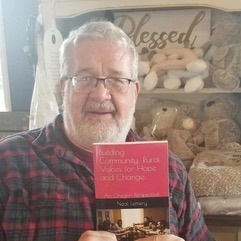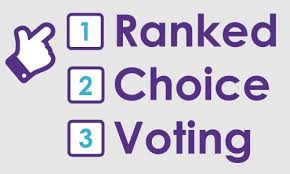by Neal Lemery
Ranked choice voting (RCV) is the new popular trend in American politics these days. In August, Washington State primary voters will choose their candidates in their primary using this method. It is also now the method used statewide in Alaska and Maine. In November, Portland voters will decide if they want RCV to choose their city commissioners and mayor.
RCV eliminates the need for runoff elections, and also sometimes allows two candidates from the same party to move ahead to the general election. The process is based on the idea that the top candidates of all the voters should prevail.
As they mark their ballots, voters literally cast several votes for an office, marking their first and second choices, and sometimes up to five “rankings”.
“A ranked-choice voting system (RCV) is an electoral system in which voters rank candidates by preference on their ballots. If a candidate wins a majority of first-preference votes, he or she is declared the winner. If no candidate wins a majority of first-preference votes, the candidate with the fewest first-preference votes is eliminated. First-preference votes cast for the failed candidate are eliminated, lifting the second-preference choices indicated on those ballots. A new tally is conducted to determine whether any candidate has won a majority of the adjusted votes. The process is repeated until a candidate wins an outright majority.” https://ballotpedia.org/Ranked-choice_voting_(RCV)
This process is already in place or will be in the next year in ten states, in some federal, state, and local elections. This idea, and its many variations, are being widely discussed.
In Oregon, Benton County has adopted this for elections involving at least three candidates for county officers. (The Sheriff is exempt from this, per state law.) One of your choices can be a write-in candidate. The voters adopted this idea and amended the county home rule charter. Tillamook County is a “statutory” county and not a home rule county, and it is unclear whether the voters here could adopt such a system without the blessing of the Legislature.
In New York City, you can have five choices, in rank order.
In Alaska, this reform has eliminated partisan primary elections, and voters can choose among all the candidates. That state used the new system a few months ago for a special Congressional election with over fifty candidates, and election officials handled the new process with apparent ease. At least three states use this for presidential candidates.
RCV is also used by a number of universities and organizations for their election processes.
The arguments in favor include:
- Determines the candidate with the strongest support
- Encourages civil campaigning
- Reduces wasted votes
- Eliminates the need for multiple elections
And the arguments against it include:
- It’s too complicated
- The person with the most votes can lose
- Your vote might not count if it’s “exhausted”
- It violates “one person, one vote”

Books: NEW book – Building Community: Rural Voices for Hope and Change; Finding My Muse on Main Street, Homegrown Tomatoes, and Mentoring Boys to Men


